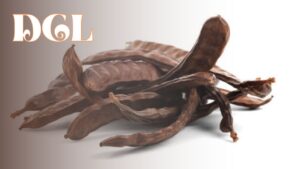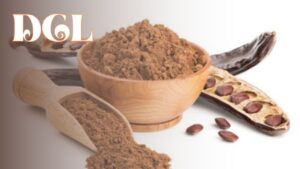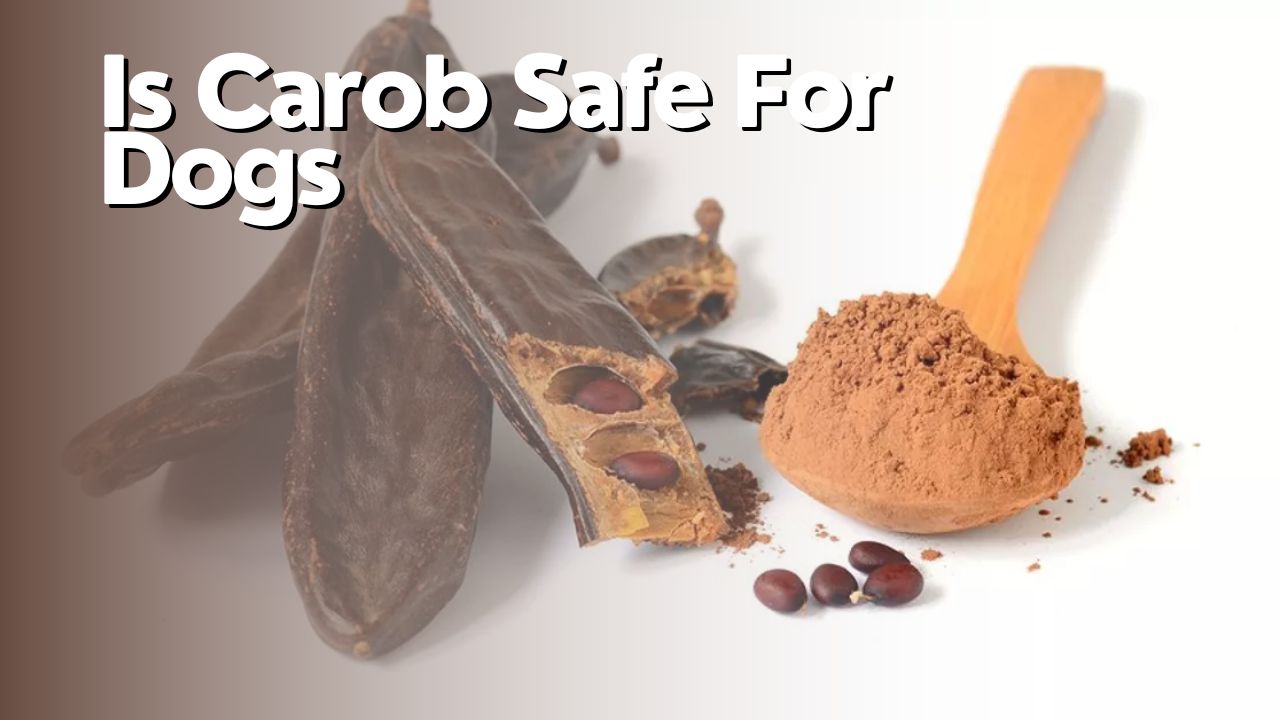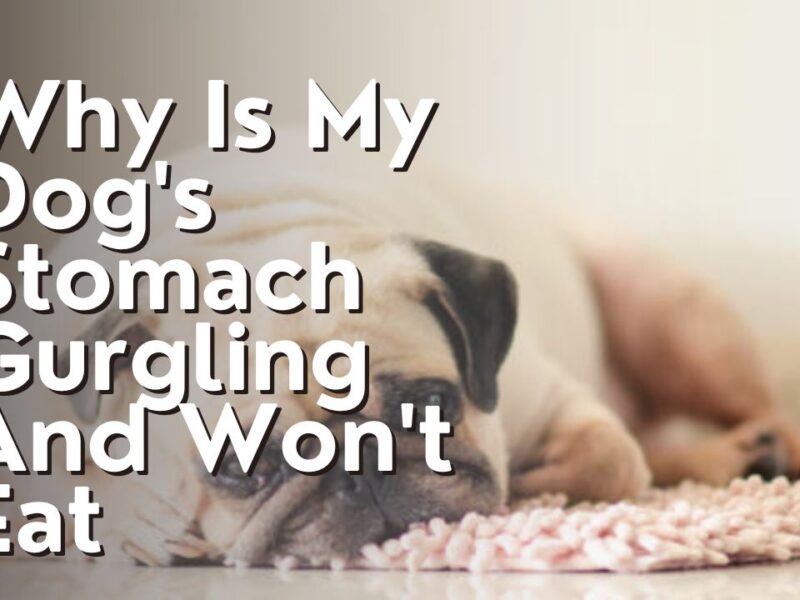Is carob safe for dogs?
As a dog owner, I’ve often wondered about this popular chocolate substitute and its potential benefits or risks for our furry friends.
In this article, we’ll explore the composition of carob, its impact on canine health, and how to safely introduce it into your dog’s diet.
By following moderation and consulting with your veterinarian, you can make informed decisions about whether carob is a suitable treat for your beloved pet.
Understanding the Composition of Carob
You’ll want to understand the composition of carob to determine if it is safe for your dog. Carob is a natural ingredient that comes from the pods of the carob tree, which is native to the Mediterranean region. It is often used as a substitute for chocolate in many dog treats and snacks because it does not contain theobromine, a compound found in chocolate that is toxic to dogs.
Carob is rich in nutrients that can be beneficial for dogs. It is low in fat and contains vitamins A, B, and D, as well as calcium, magnesium, and potassium. These nutrients can support your dog’s overall health and well-being.
In addition to being nutritious, carob also has a naturally sweet taste that dogs enjoy. It can be a great alternative for dogs who have a sweet tooth but cannot tolerate chocolate. However, it is important to note that carob should be given to dogs in moderation, as excessive consumption can lead to digestive issues such as diarrhea.
Before introducing carob into your dog’s diet, it is always best to consult with your veterinarian. They can provide you with personalized advice based on your dog’s specific needs and health conditions. Overall, carob can be a safe and tasty treat for dogs when given in appropriate amounts.

Carob and Canine Health
There are several factors to consider when incorporating this treat into your furry friend’s diet. Carob can be a safe and healthy option for dogs, but it’s important to understand how it can affect their overall health.
Here are three key points to keep in mind:
- Digestive Health: Carob is known for its high fiber content, which can help regulate your dog’s digestive system. It can be a great option if your pup is experiencing constipation or diarrhea.
- Weight Management: Carob is naturally low in fat and calories, making it a suitable treat for dogs on a weight management plan. It can satisfy their sweet tooth without adding unnecessary pounds.
- Allergies: Unlike chocolate, carob does not contain theobromine, a substance that can be toxic to dogs. This makes carob a safe alternative for pups with chocolate allergies or sensitivities.
However, it’s important to remember that every dog is different, and what works for one may not work for another. It’s always recommended to consult with your veterinarian before introducing any new food or treat into your dog’s diet.
Moderation and Portion Control
When it comes to feeding our furry friends carob treats, it’s important to practice moderation and portion control. Recommended serving sizes should be followed to ensure that dogs are getting the right amount of carob without overindulging.
Monitoring for signs of overindulgence is crucial, as excessive consumption of carob can lead to potential risks such as upset stomach, diarrhea, and weight gain.
Recommended Serving Sizes
If your dog is healthy, they can safely consume carob in small serving sizes. Carob can be a tasty and nutritious treat for your furry friend, but it’s important to remember that moderation is key. Here are three recommended serving sizes to keep in mind:
- Small dogs (up to 20 pounds): Start with a quarter teaspoon of carob powder or a small carob treat. Monitor your dog’s reaction and adjust the serving size accordingly.
- Medium dogs (20-50 pounds): Begin with half a teaspoon of carob powder or a medium-sized carob treat. Again, observe your dog’s response and adjust as needed.
- Large dogs (over 50 pounds): You can offer up to a teaspoon of carob powder or a larger carob treat to your big buddy. Keep an eye on their digestion and adjust the serving size if necessary.
Remember, it’s always a good idea to consult with your veterinarian before introducing any new food into your dog’s diet.
Monitoring for Overindulgence
To prevent overindulgence, it is important to closely monitor how much carob your furry friend consumes. Carob is generally safe for dogs, but moderation is key. Consider your dog’s size and weight when giving them carob, and start with small servings. Gradually increase the amount if your dog tolerates it well. Remember that carob contains natural sugars, so excessive consumption can lead to weight gain and upset stomach. Some dogs may have sensitivities or allergies to carob, so watch for any adverse reactions such as diarrhea, vomiting, or changes in behavior. By monitoring your dog’s carob intake, you can ensure their safety and enjoyment of this tasty treat.
Potential Risks of Excessive Consumption
Make sure you closely monitor how much carob your furry friend consumes to avoid potential risks of excessive consumption. While carob is generally considered safe for dogs, consuming too much can lead to digestive issues such as diarrhea, vomiting, and stomach discomfort.
It is important to remember that carob contains natural sugars and can be high in calories, so overindulgence can contribute to weight gain and obesity in dogs. Additionally, some dogs may have an allergic reaction to carob, so it’s important to watch for any signs of itching, swelling, or difficulty breathing.
To ensure your dog’s safety, limit their carob intake and consult with your veterinarian if you have any concerns.
- Excessive carob consumption can lead to digestive issues
- Carob is high in calories and can contribute to weight gain
- Some dogs may have an allergic reaction to carob
Introducing Carob into Your Dog’s Diet
When introducing carob into your dog’s diet, it’s important to do so gradually and monitor their reaction. Start by adding small amounts of carob to their regular meals and observe any changes in their digestion or behavior.
Another way to incorporate carob is by making homemade treats using carob powder or chips, ensuring that the recipe is safe for dogs.
Alternatively, you can also find store-bought carob products specifically made for dogs, such as carob cookies or carob-covered treats, which can be a convenient option for introducing this ingredient to your dog’s diet.

Gradual Transition and Monitoring
Monitoring your dog’s response to a gradual transition to carob is important for their safety. It is recommended to introduce carob slowly into their diet, starting with small amounts and gradually increasing over time. This allows their digestive system to adjust and prevents any potential adverse reactions. During the transition, it is crucial to monitor your dog for any signs of discomfort or digestive issues, such as diarrhea or vomiting. Keep a record of the amount of carob given and any observed reactions in a table like the one below:
| Date | Amount of Carob Given | Observations |
|---|---|---|
| 01/01/2022 | 1 teaspoon | No adverse reactions |
| 01/03/2022 | 2 teaspoons | Mild loose stool |
| 01/05/2022 | 1 tablespoon | Normal stool, no discomfort |
By closely monitoring your dog’s response to carob, you can ensure their safety and make necessary adjustments to their diet as needed.
Incorporating into Homemade Treats
To include carob in homemade treats, you can simply substitute it for other ingredients like cocoa powder or chocolate. Carob is a safe and healthy alternative for dogs, as it does not contain theobromine, which is toxic to them.
When incorporating carob into homemade treats, I suggest starting with a small amount and gradually increasing it to ensure your dog tolerates it well. You can mix carob powder into the dough or batter of your favorite dog treat recipe, or you can even melt carob chips and drizzle them over the treats for a tasty and visually appealing touch.
Remember to always monitor your dog after feeding them treats with carob and consult with your veterinarian if you have any concerns.
Store-Bought Carob Products for Dogs
Now let’s talk about another option for incorporating carob into your dog’s diet: store-bought carob products.
These products are specifically formulated for dogs and can be a convenient and tasty way to introduce carob into their routine. Many pet stores offer a wide range of carob treats, such as carob cookies, carob chips, and carob-covered biscuits. These products are often made with high-quality ingredients and are free from harmful additives like chocolate.
When choosing store-bought carob products for your furry friend, it’s important to read the labels and select ones that are low in sugar and do not contain any artificial sweeteners or xylitol, as these can be toxic to dogs.
Remember, moderation is key when treating your pup, so be sure to follow the recommended serving sizes provided on the packaging.
Consulting with Your Veterinarian
Make sure you consult with your vet about whether carob is safe for your dog. Your veterinarian is the best person to provide you with accurate and personalized information regarding your dog’s health and dietary needs. They will be able to assess your dog’s specific situation and determine if carob is a safe option for them.
During the consultation, your vet will consider various factors such as your dog’s age, breed, size, and any existing health conditions. They will also take into account any medications or supplements your dog may be taking, as these can interact with carob or other ingredients commonly found in carob products.
It is important to have this conversation with your vet because although carob is generally considered safe for dogs, it may not be suitable for every dog. Some dogs may have specific allergies or sensitivities that could make carob harmful to them. Additionally, certain carob products may contain added ingredients that could be potentially harmful to dogs.
By consulting with your veterinarian, you can ensure that you are making the best decision for your dog’s health and well-being. They will be able to guide you on whether carob is safe for your dog and recommend appropriate products or alternatives if necessary. Remember, your vet is there to help you make informed choices and keep your furry friend safe.
Frequently Asked Questions
Can carob be used as a substitute for chocolate in dog treats?
Yes, carob can be used as a safe and healthy substitute for chocolate in dog treats. It’s a dog-friendly alternative that won’t harm their health but still provides a delicious taste.
How much carob can I safely give my dog on a daily basis?
I can safely give my dog a small amount of carob on a daily basis. However, it’s important to remember that moderation is key. Too much carob can lead to digestive issues for dogs.
Are there any potential side effects or allergies associated with feeding carob to dogs?
There are potential side effects and allergies associated with feeding carob to dogs. It’s important to monitor your dog for any adverse reactions such as upset stomach, diarrhea, or allergic reactions.
Can carob be given to dogs with certain health conditions or dietary restrictions?
Carob can be given to dogs with certain health conditions or dietary restrictions. However, it’s important to consult with a veterinarian to determine if carob is suitable for your dog’s specific needs.
Is there a recommended age for introducing carob into a dog’s diet?
There is no recommended age for introducing carob into a dog’s diet. However, it is important to consult with a veterinarian to ensure it is safe for the dog based on their individual health needs.
Conclusion
In conclusion, I believe that carob can be a safe and healthy treat for dogs. It should be given in moderation and with proper portion control. It is important to understand the composition of carob and its potential benefits for canine health.
However, before introducing carob into your dog’s diet, it is always best to consult with your veterinarian. They can ensure it is suitable for your specific dog and provide personalized recommendations.
With careful consideration and guidance, carob can be a tasty and nutritious addition to your dog’s treats.


